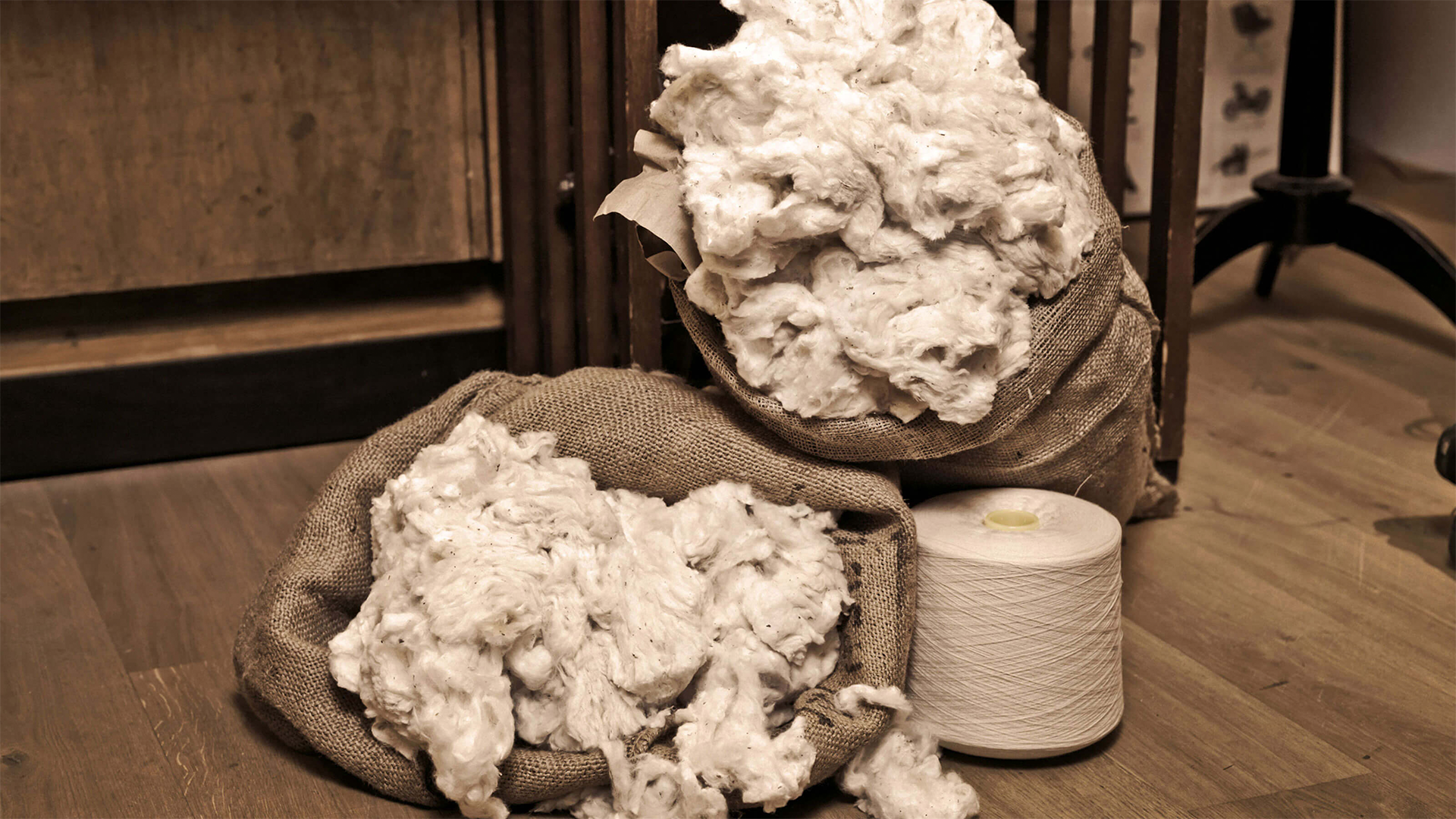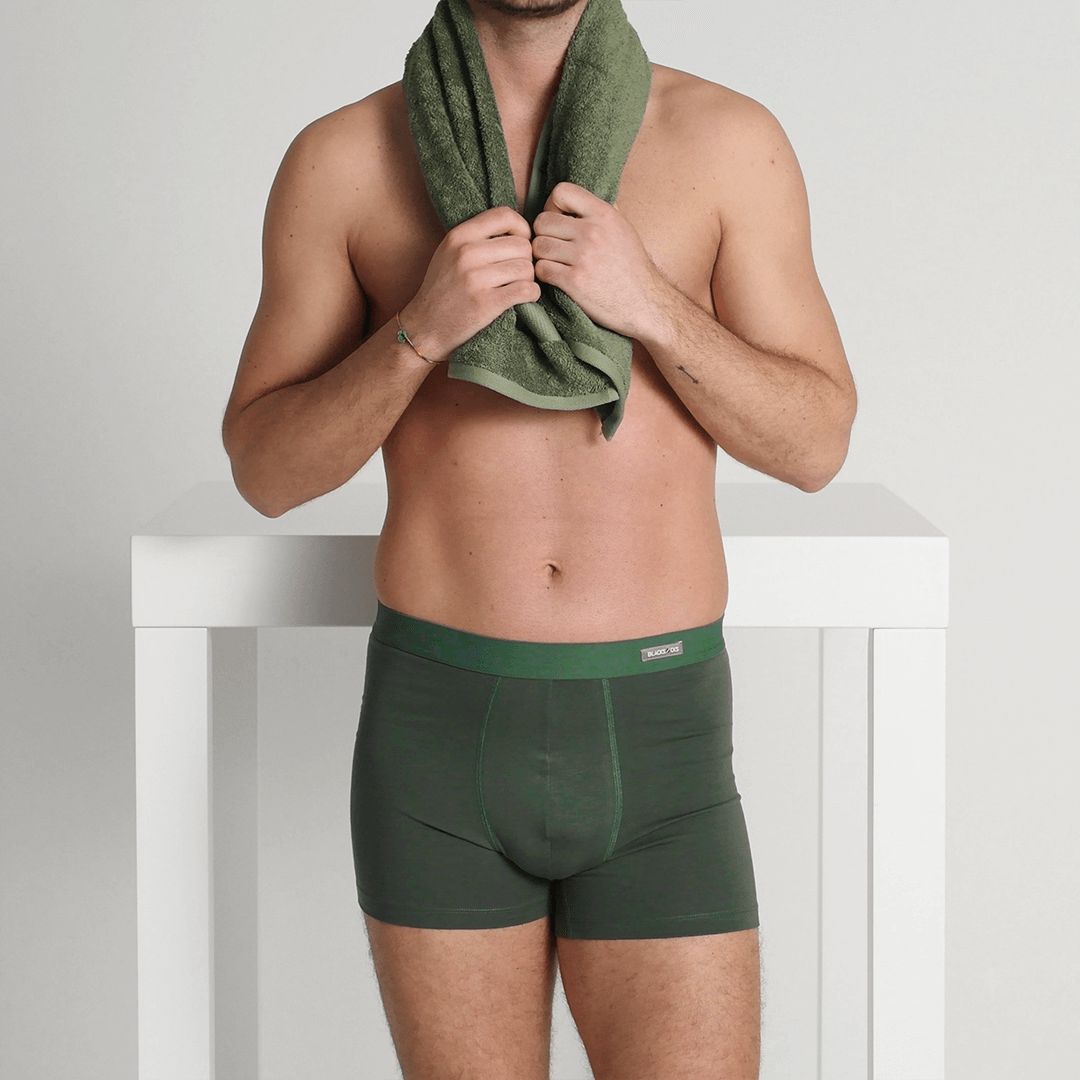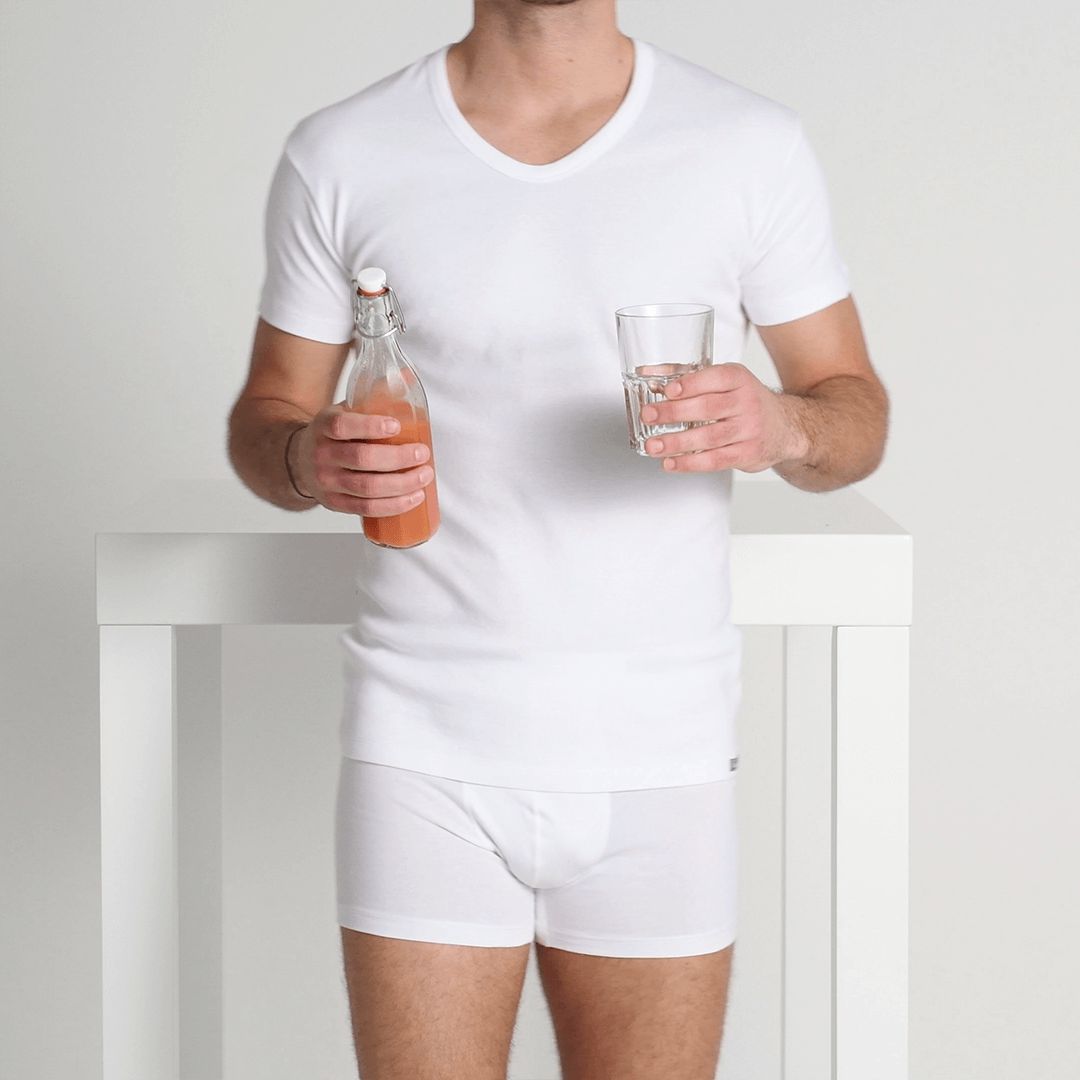Why are certifications important in the textile industry?
Sustainability and transparency in the textile industry are hugely important issues - but many labels and claims on the market are vague and meaningless. Our certificates give you the assurance that you are making a sustainable and ethical choice for yourself and the environment!
Our Oeko-Tex® certification guarantees that our textiles are free from harmful substances and chemicals. GOTS® certification guarantees that our organic cotton is grown and processed using environmentally friendly methods that promote biodiversity and reduce the use of toxins - for sustainable agriculture.
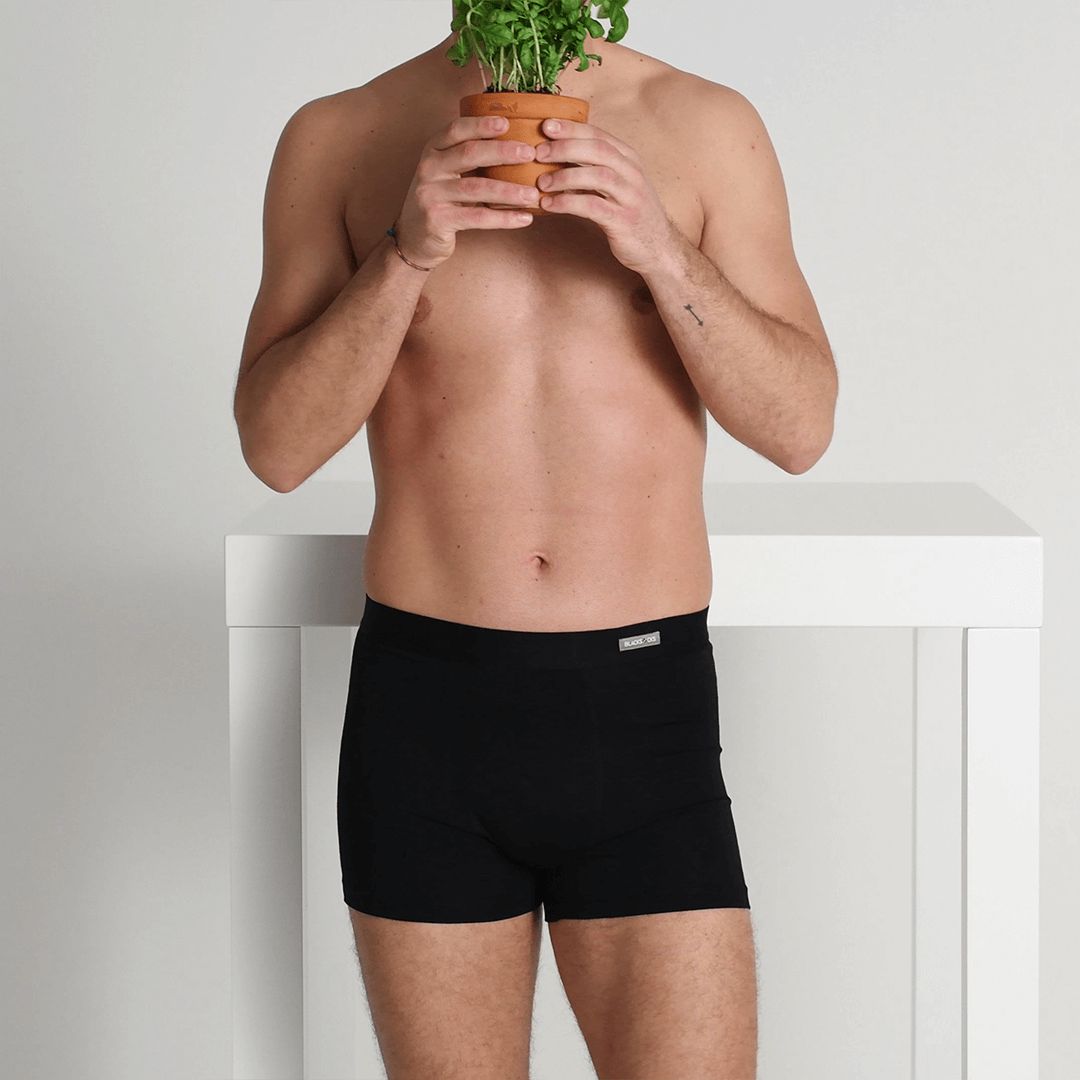
Textile confidence
Oeko-Tex® Standard 100
You wear your clothes next to your skin. There is a nasty environment between skin and fabric: sweat, heat, cold and friction. That's why textile safety is important to us. Our socks, underpants and T-shirts are Oeko-Tex® Standard 100 certified and therefore 100% skin-friendly and allergy-tested.
Oeko-Tex assures you:
- All components of our articles, i.e. all threads, labels, etc. have been tested for harmful substances and are therefore harmless to health
- The test procedure takes into account numerous substances, both regulated and non-regulated, which could be harmful to human health. The legal limits often exceed national and international requirements.
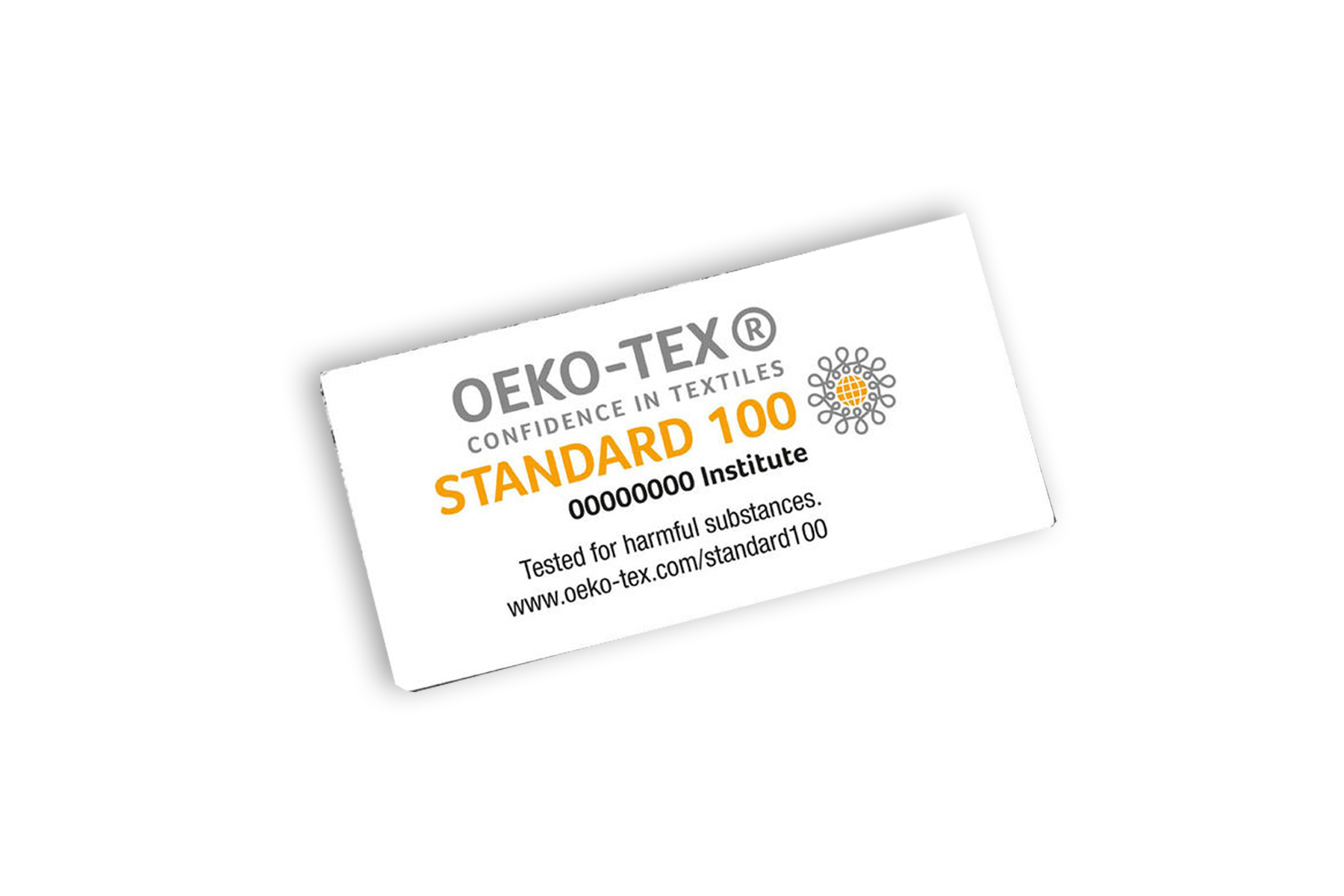
Guaranteed good
Check the labels here
The Oeko-Tex® label guarantees the customer that the clothing is a health-free goods and forms an important decision-making aid when shopping for textiles.
Certificates:
Certified labels & ligaments (product class I): Oeko -Tex Standard 100 - Elasticos Oliveira & Ferreira, LDA.
Sustainable & harmful materials (product class I): Oeko -Tex Standard 100 - Etigui Etiquetas Guimaraes Unipessoal, LDA.
Certified materials for socks, underwear, sportswear, leisure & swimwear (product class II): Oeko -Tex Standard 100 - Jobarros, LDA.

For the sake of the environment
GOTS® standard for organic cotton
GOTS® is the leading international standard for organic textiles. The criteria include, among other things:
- Use of natural products that protect against pests
- Use of largely renewable resources
- Preservation of soil fertility
- Testing chemical additives such as dyes for toxicity and biodegradability
- Processing and production of textiles based on ecological and social criteria at every stage of production - this includes the ethical treatment of workers.

The winner among socks
Kassensturz & K-Tipp tested
Oeko-Tex stands for "Confidence in Textiles" - a worldwide synonym for responsible textile production - from the raw material to the finished product.
The Oeko-Tex® standard was developed at the beginning of the 1990s in response to the need for eco-textiles that are harmless to health. Since then, independent testing institutes of the International Oeko-Tex® Association have stood up for textile products that are harmless to health.
For companies in the textile and clothing industry, the Oeko-Tex® criteria catalog provides a uniform and scientifically based assessment standard for evaluating possible harmful substances in textiles.
Frequently asked questions
Why do I need Oeko-Tex socks?
Socks and underwear are worn directly on the skin all day long. Sweat and friction make the skin sensitive and susceptible to harmful substances and inferior colors in textiles. But not our products! Oeko-Tex has tested our socks, underpants and T-shirts for harmful substances, so you can wear them without worrying.
Who is behind Oeko-Tex®?
The Oeko-Tex® standard was developed at the beginning of the 1990s in response to the need for eco-textiles that are harmless to health. Since then, independent testing institutes of the International Oeko-Tex® Association have stood up for textile products that are harmless to health, and the Oekotex criteria catalog provides companies in the textile and clothing industry with a uniform and scientifically based evaluation standard for assessing possible harmful substances in textiles.
Who is behind GOTS®?
The Global Organic Textile Standard (GOTS®) is the world's leading textile processing standard for organic textiles, including environmental and social criteria, backed by independent third-party certification of the entire textile supply chain.

